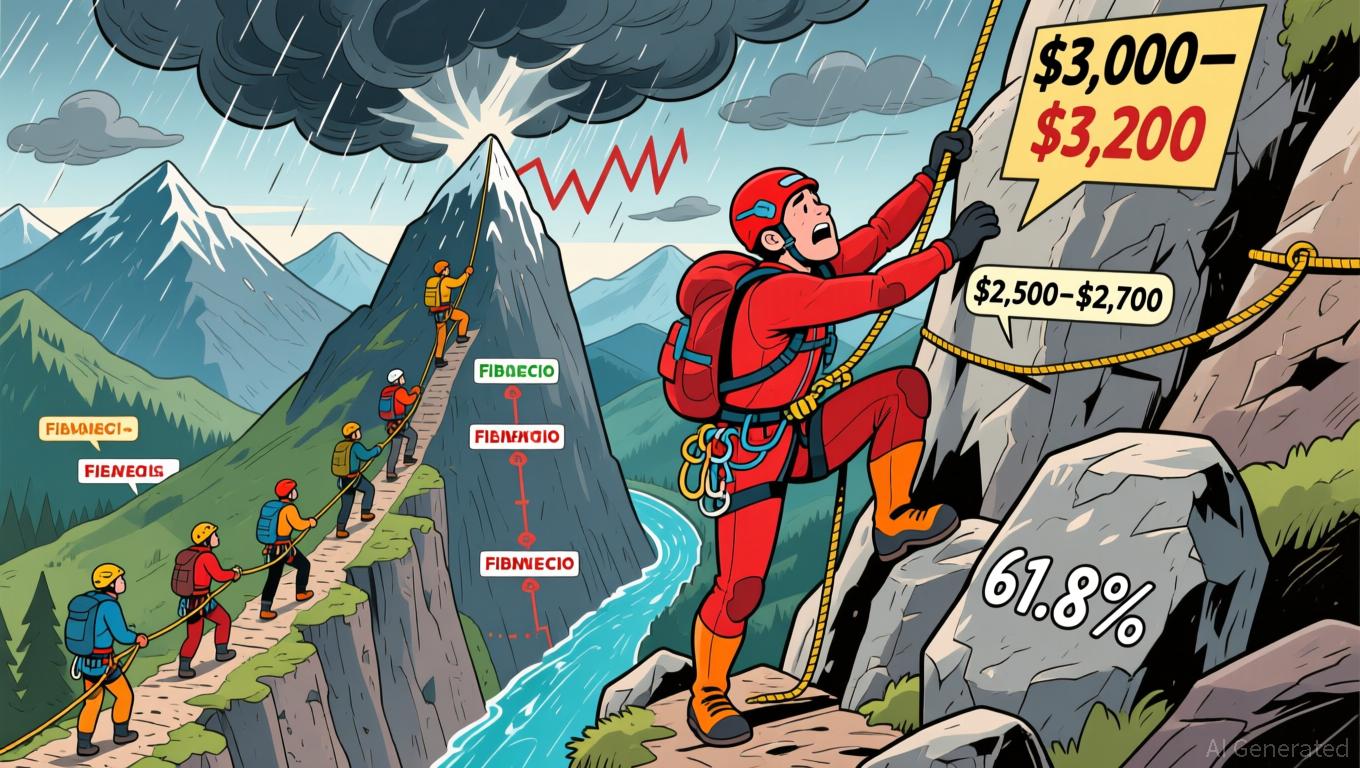Korean Won Stablecoin Alliance Seeks to Disrupt US Dollar Dominance in Digital Finance
- WEMADE leads Korean won stablecoin alliance with CertiK, Chainalysis, and SentBe to challenge USD-dominated stablecoin markets. - CertiK provides security infrastructure for StableNet mainnet, while Chainalysis/SentBe enhance compliance and transparency. - South Korea's $10.3B Upbit-Naver merger and KakaoBank's initiatives reflect national strategy to assert monetary sovereignty via blockchain. - Regulatory hurdles persist, but alliance aims to navigate 51% bank ownership rules through security-complianc
WEMADE Launches Global Korean Won Stablecoin Alliance
WEMADE, a prominent South Korean company specializing in gaming and blockchain technology, has unveiled the Global Korean Won Stablecoin Alliance (GAKS). This new coalition, formed in partnership with blockchain security expert CertiK, as well as Chainalysis and SentBe, aims to establish a robust ecosystem for a stablecoin anchored to the Korean won. The alliance seeks to position South Korea as a formidable competitor in a market currently dominated by U.S. dollar-backed stablecoins.
Announced on November 28, this initiative represents a major milestone in South Korea’s ongoing efforts to strengthen its monetary independence within the digital finance sector. By harnessing blockchain technology, the alliance intends to build a stablecoin infrastructure centered on the local currency.

CertiK’s Role and Technical Contributions
CertiK, recognized globally for its expertise in Web3 security, will provide essential technical support for the alliance. This includes overseeing the StableNet mainnet—WEMADE’s blockchain platform designed to manage the Korean won stablecoin. CertiK’s responsibilities encompass conducting security audits, verifying network nodes, and monitoring on-chain activity to safeguard the platform against potential threats.
Chainalysis and SentBe, both leaders in blockchain analytics and compliance, are expected to enhance the ecosystem’s transparency and regulatory compliance, although their specific contributions have not yet been detailed. The formation of GAKS comes amid a surge in South Korea’s stablecoin initiatives, with major technology companies and financial institutions accelerating their efforts, supported by favorable government policies.
Challenging the U.S. Dollar’s Dominance
This Korean won stablecoin project is part of a broader national strategy to reduce reliance on U.S. dollar-pegged stablecoins such as Tether (USDT) and USD Coin (USDC). Leading South Korean tech firms, including KakaoBank and Naver, are racing to introduce their own won-based stablecoins. Notably, Naver recently finalized a $10.3 billion merger with Upbit, the country’s largest cryptocurrency exchange. President Lee Jae-myung has underscored the significance of these initiatives, emphasizing that widespread use of foreign-backed stablecoins could diminish the won’s influence in digital commerce.
Global Trends and Competitive Landscape
The GAKS alliance reflects a worldwide movement toward stablecoin innovation, with many regions exploring alternatives to U.S. dollar-based digital currencies. For instance, Klarna has introduced KlarnaUSD, a stablecoin built on Stripe’s Bridge and Tempo infrastructure. Additionally, companies like Wirex and Crossmint are expanding multichain stablecoin payment solutions, highlighting the growing need for interoperability across blockchain networks. These advancements underscore the competitive environment in which WEMADE and its partners are operating.
Regulatory Challenges and Future Prospects
Despite its promise, the Korean won stablecoin ecosystem must overcome regulatory challenges, such as the Bank of Korea’s mandate that banks hold a majority stake in stablecoin issuers. WEMADE’s collaboration with CertiK and other industry leaders may help address these obstacles by integrating advanced security and compliance protocols. If successful, the initiative could see rapid adoption through popular payment platforms like KakaoPay and NaverPay, which together reach millions of users. Experts believe that South Korea’s focus on local currency stability and blockchain adoption could serve as a blueprint for other countries aiming to decrease their dependence on U.S. dollar-based digital assets.
Disclaimer: The content of this article solely reflects the author's opinion and does not represent the platform in any capacity. This article is not intended to serve as a reference for making investment decisions.
You may also like
CME Suspension: Global Market Vulnerabilities Revealed by Thermodynamic Constraints
- CME Group halted Globex trading on Nov 28, 2025 due to CyrusOne cooling system failure in Chicago, freezing 90% of global derivatives markets. - The outage caused erratic price swings in gold/silver and disrupted EBS forex platforms, exposing vulnerabilities in third-party data center reliance. - Despite post-holiday timing softening immediate impact, the incident highlighted systemic risks from thermodynamic limits in AI-era infrastructure. - CME faces pressure to build redundant systems as it expands c

Turkmenistan's Approach to Cryptocurrency: Navigating Government Oversight and Public Confidence
- Turkmenistan will implement strict crypto regulations from 2026, requiring miner registration, exchange licensing, and anti-money laundering protocols under President Berdimuhamedov. - The framework mirrors Central Asian neighbors' approaches but prohibits anonymous transactions, national symbols in branding, and hidden mining operations. - While aligning with global crypto oversight trends, the law maintains state control over digital assets, raising questions about market viability amid Turkmenistan's

Ethereum Updates Today: Institutional Optimism Meets Technical Challenges: The Pivotal Moment for Crypto
- Ethereum and XRP face critical technical junctures on Nov 28, 2025, with ETH testing $2,500–$3,200 support and XRP hovering near $2.30 amid mixed signals. - Bitcoin's bearish trend (50-day EMA at $100,937) contrasts with JPMorgan's "tradable macro asset" designation, potentially attracting institutional capital. - Solana's BONK memecoin launches a physically-backed ETP on SIX Swiss Exchange, bridging meme coins and traditional markets amid SOL's $140 support risks. - Market dynamics highlight institution

How a Query from an Office Supplies Specialist Transformed a $12 Billion Trucking Approach
- A non-trucking board member's question prompted Ryder System to shift focus from leasing to targeting 80-85% of companies owning their own trucks. - The strategic pivot aligns with growing demand in long-haul freight driven by e-commerce, trade agreements, and tech innovations like IoT fleet management. - Industry consolidation and sustainability trends, including electric trucks, are reshaping competition as firms expand specialized services like temperature-controlled logistics. - Ryder's experience hi
